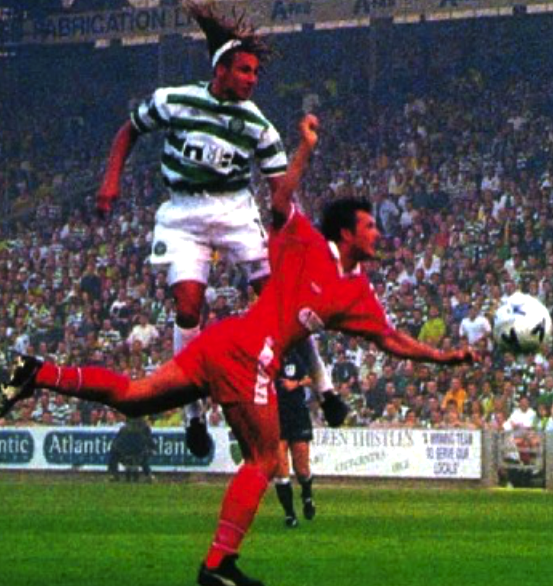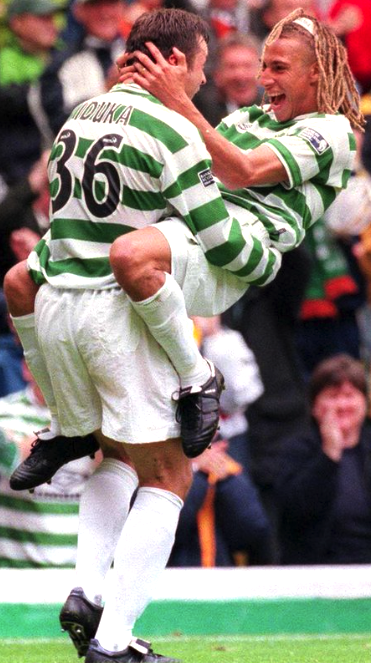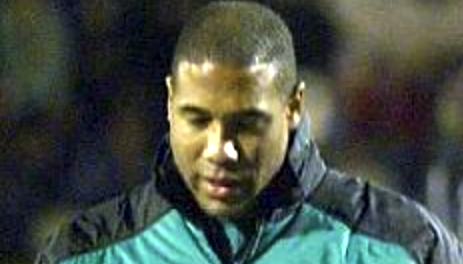TWENTY-FOUR years ago, Celtic suffered the most humiliating result in the club’s history.
The miserable and sensational reverse also turned around the thinking at the Parkhead club that saw seismic changes in its wake.
In another CQN EXCLUSIVE series, we look at the lead-up to the inexplicable Scottish Cup exit against Inverness Caley Thistle on February 8 2000, the actual evening of the match that earned the club a place in infamy, the fall-out and ramifications – and the welcome transformation that propelled Celtic into a new era.
Here is Part Two of edited extracts from Celtic author Alex Gordon’s tribute book, ‘The Winds of Change‘, which was published by CQN in 2015.
Please enjoy.

CELTIC chief executive Allan MacDonald admitted: “Appointing John Barnes is a high risk, but, hopefully, not too high a risk.
“We have put in place an enormous insurance policy in the shape of Kenny Dalglish. We want this management team to grow with Celtic. What we now have is a team in place for the next five, six, seven years.”
Unfortunately, the longevity of the partnership fell well short of the Celtic supremo’s expectations.
Back in the summer of 1999, neither Barnes nor Dalglish would have cause to complain about the so-called “biscuit tin mentality” of the new man in charge.
MacDonald made funds available and Celtic set a new Scottish transfer record fee of £5.75million when they bought cultured Israeli midfielder Eyal Berkovic from West Ham, beating Rangers’ cash outlay for Andre Kanchelskis from Fiorentina the previous season by £250,000.

HIGH AND MIGHTY…Henrik Larsson soars above former Celt Derek Whyte to bullet in a header for the opener in a 5-0 win over Aberdeen at Pittodrie in August 1999 to get John Barnes’ managerial career off to a flying start.
Centre-back Olivier Tebily was brought in from Sheffield United with the price tag of £1.2million and Chelsea keeper Dimtri Kharine and Ipswich Town winger Bobby Petta also arrived on Bosman deals.
After much red-tape wrangling, Bulgarian midfielder Stilian Petrov received his work permit and arrived in a £2.2million deal from CSKA Sofia. On the same day, Enrico Annoni was released and the versatile defender returned to Italy. Young French striker Stephane Bonnes, who arrived from bankrupted FC Mulhouse, was offered a four-year contract.
Celtic fans in the 52,715 crowd got their first hint of Barnes’ footballing philosophy in a pre-season friendly against Leeds United at Parkhead on July 24. Berkovic, Tebily and Petta all played as the Elland Road side, distressingly, cantered to an all-too-easy 2-0 triumph.
Ivory Coast defender Tebily scored a spectacular own goal and was thereafter christened “Bombscare”. Barnes was far from downhearted at the end and observed: “That was a typical performance from a team that’s been together for two or three years to one that is just beginning.”
I was invited to the Directors’ Box for the match against Newcastle United three days later when a staggering crowd of 59,252 turned out on a pleasant, balmy evening. Celtic won 2-0 and this time Tebily put the ball in the opponents’ net for the opener while Mark Viduka hit the second.

Henrik Larsson, who had missed the previous disappointing display through injury, returned to indulge the support with an irresistible performance. Ruud Gullit, the St James’s Park manager, actually applauded the skills of Larsson from the touchline on several occasions.
Allan MacDonald realised Larsson was on the wanted list of several top clubs across the border. Worryingly, he had discovered there were directors who were more than willing to part with the charismatic fans’ favourite if the price was right.
The chief executive immediately got the current Scottish Player of the Year to agree a four-year extension to his contract with weekly wages believed to be around £25,000. Actually, I have heard of higher figures with all sorts of add-ons, but, thankfully, Larsson was now in the sort of earning bracket that would make Manchester United or anyone else think twice about attempting to lure him from Glasgow.
Barnes was fervently applauded all the way along the Pittodrie trackside to the dug-out opposite the halfway line as Celtic opened the league season – and, apparently, ushered in yet another new era – against Aberdeen on Sunday, August 1 1999 with the TV cameras beaming the match nationwide and beyond.
The new Head Coach was very much in focus and an intrigued audience of millions enthusiastically tuned in to see what he could provide as a tactician. Beaming broadly, and as if walking on air, Barnes floated back to the dressing room at the end of the action.
Celtic, playing with verve and dash that was easy on the eye, had just pummelled Aberdeen 5-0. Ebbe Skovdhal, the Dons’ new Danish coach, had arrived with a huge reputation for his deeds at Brondby, but neither he nor his players had an answer as their aspirations were swept into the North Sea long before the interval.

JOY BHOYS…Mark Viduka and Henrik Larsson celebrate during Celtic’s 5-0 romp at Pittodrie.
Barnes’ team were coasting at 3-0 as they weaved pretty patterns all over the immaculate playing surface. It was polish aided by power; class with clout. Henrik Larsson knocked in the opener in the fourth minute and Mark Viduka added two more in the space of six sparkling minutes before half-time.
The large travelling support in the 16,080 crowd cheered their team off the field and wondered if the second-half would provide something of the same. Only three minutes after the turnaround, the home side were given the opportunity to pull one back when Olivier Tebily hauled down Robbie Winters for an undeniable penalty-kick.
Eoin Jess hammered the ball to Jonathan Gould’s left and watched in dismay as the keeper threw himself full-length to claw the ball out of the air. Larsson showed Jess how it should be done from the spot four minutes later when he smashed his effort wide of David Preece.
Just after the hour mark, Viduka limped off and Barnes introduced Mark Burchill who claimed the fifth goal in the fading moments.
It had been an exhilarating performance by Celtic and Barnes enthused: “This is the way I have always wanted to play and, fortunately, I have the players to do it.”
Forgetting for a moment that football is a results-driven business, the rookie boss added innocently: “I would even accept the odd defeat during the course of a season as long as we played like that.”
Skovdahl, with a measure of honesty, admitted: “I have to say that if I was not the Aberdeen manager, then I would have enjoyed watching Celtic.”
* TOMORROW: Don’t miss Result That Changed The Course Of Celtic History: Part Three.

